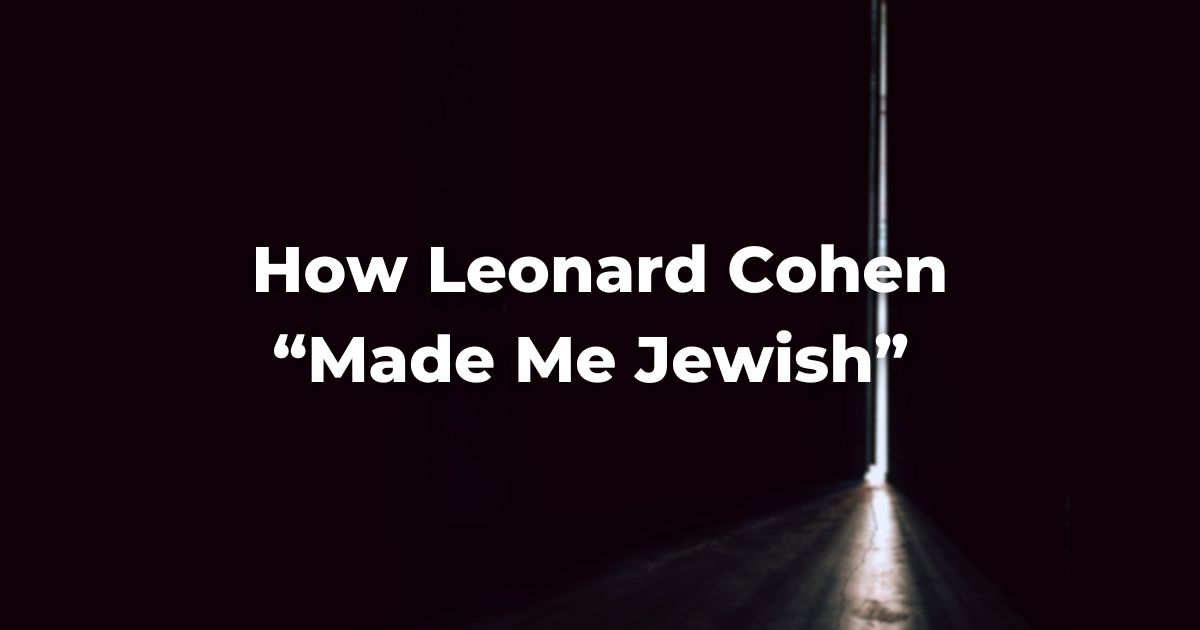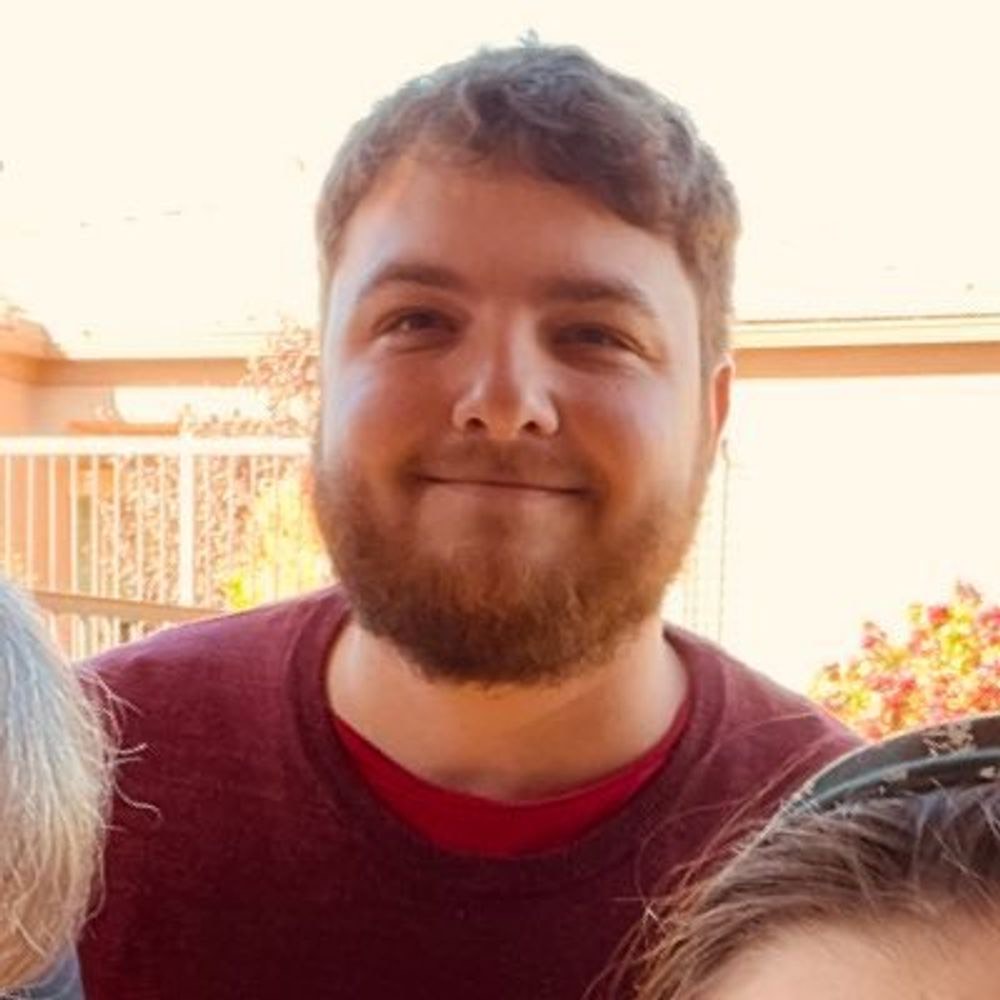Who has gone up to heaven and come down? This is the aspect of the musician. The musician goes up and down in the music, because he has to go up and down on the scale of the strings in line with the song’s notes in order to gather the ruach. —Nachman of Breslov
Between semesters, in the middle of my final year of college, I knew I was Jewish, but it didn’t mean much to me. And I especially knew I didn’t believe in God. After all, I could barely manage my own life. How could I expect there to be someone up above micromanaging every atom and quark in existence?
I did, however, think of myself as an aspiring cultural Jew, which for me mainly meant listening to episodes of The New Yorker Radio Hour. As I did so often back then, I thoughtlessly pressed play on an episode in my podcast app and went out into my college town to take a walk. This installment was an interview with Leonard Cohen, the Jewish singer-songwriter behind the song “Hallelujah” and, I’d soon find out, many others.
I enjoyed the songs I learned about in the episode—“Bird on the Wire,” “Suzanne,” “So Long, Marianne,” and, probably most of all, “Tower of Song.” But those weren’t what suddenly changed me. What suddenly changed me was when, as host David Remnick brought up the fact that many of Cohen’s fans considered him a “quasi-religious figure” (“the high priest from Montreal,” as I’d later hear Rabbi David Ingber describe him), Cohen initially resisted the characterization—but then Cohen conceded:
In my own mind, I know that I’m deeply conditioned by … One of the great themes of Kabbalistic thought is the idea that the thrust of Jewish activity is the repair of God. God, in creating the world, dispersed Itself. The creation is a catastrophe. There are pieces of Him or Her or It that are everywhere, in fact. And the specific task of the Jew is to repair the face of God. The prayers are to remind God that It was once a harmonious unity.
I had grown up with so little Jewish education that I had no notion of tikkun olam (repairing the world), nor any of the baggage that can come with being beat over the head with the concept in reductive ways. The only context I had was the song that Remnick played next, “Anthem.”
Ring the bells that still can ring
Forget your perfect offering
There is a crack in everything
That’s how the light gets in
When I heard that chorus, everything I’d been going through emotionally at that time had retroactively made sense.
You see, the past semester, I’d been in this internship program that made me absolutely miserable. I had the meanest and most intimidating boss, and if she didn’t give me a good evaluation, I wouldn’t graduate on time. To stress me out even more, I was a journalism major, deeply insecure about my job prospects upon graduation. I had gotten my first writing gig on the condition that I could produce 20 articles per month—in addition to my courses and the internship from Gehenom.
I’m still not sure how I made it out that fall semester alive, with my hopes and dreams intact, and even experiencing one of the most joyful periods of my life. But that song gave me the best explanation I’d gotten: For those past few months, I’d put aside my fear of failure and my unproductive worrying and spent all my time simply doing what I needed to do, to the best of my abilities.
The cause of the improbable happiness seemed to be summed up in the words I was just learning from “Anthem”: “Don’t dwell on what has passed away, or what is yet to be.” Somehow, the crushing pressure I was feeling had enabled me to, for once in my life, find it in myself to be the kind of person who could do that.
I realized it was through latching onto whatever hope, positivity, and self-belief I could find that enabled me to move forward and toward a better place. A God whose hand I could see in everyday events, that wouldn’t work for me. But one who could take the modest effort from inside me and show me how the tides of my inner and outer life could turn in my favor, that I could believe in—because I was experiencing it.
The 18th-century mystical text called the Tanya teaches that the Godly soul inside of us is chelek eloah mimma’al mammash, “truly a part of God above.” Most of us have no way of knowing God “above.” But I found—and I’m still finding out—that we can seek to know the Godliness within ourselves, and within others, to slowly get more of a glimpse of that unity that underlies all things.
While one might expect to discover their Jewish identity and connection through summer camp, Hillel, Seinfeld, or synagogue, my way in was through myself—with the help of the high priest from Montreal.
There’s a saying from the Hasidic master Tzadok HaKohen of Lublin: “Just as a person is required to believe in God, so too are they afterwards required to believe in themself.” While I like this line a lot, I find that, for some of us, learning to believe in ourselves is the first, crucial step.
Author
-

Cody Fitzpatrick is a freelance writer and editor based in Arizona. In addition to Exploring Judaism, he currently mainly works with 18Forty and Phoenix New Times. He is a member of The New Shul in Scottsdale, Arizona.
View all posts






